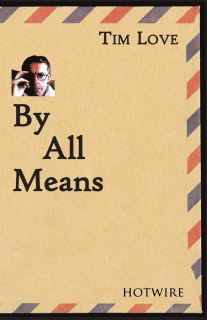My "Matters of Life and Death" story recently appeared in Postbox (issue 4). Unusually for a story of mine, it hops back and forth in time. It begins with the narrator recalling holidays visiting his aunt with his parents, and how he met an artist. "Foreigners/strangers" and "death" are introduced as themes.
| It was part of my routine to be down by the shore when the fishing boats returned. When I saw a fish flapping on the deck I was transfixed by the thought of seeing something die. Years later I used the image to describe a foreign couple in the throes of sex. |
After a boom-and-bust career and mental health issues he turned to writing and art. Art and Life became correlates, an art book's title corresponding to the story's.
| I don't think art's an escape from life, however abstract or shocking it might be. In the art book I'm reading at the moment, "Masters of Line and Depth", Cezanne says that "a picture should give us ... an abyss in which the eye is lost". His perspective wasn't a simple pyramid of pencil lines leading to a vanishing point. We are seduced by his paint, not his lumpy women. But I also believe that art, however primitive, can enrich life. Even if we are so overwhelmed by sensations that our sense of self is diminished, paintings fail unless we return enriched to the real world. Cezanne says that we should "rise again from them with colours, be steeped in the light of them". I try, though some days are harder than others. |
Much later he and his foreign wife return for his aunt's funeral. After years of trying, his wife's pregnant. In the final paragraph his attitude to time remains unresolved -
| I believe that life can rise from death given time. I believe that art can preserve what genes forget. When the past's a mirror, the future repeats its patterns, though I needed a son before realising this. My wife says that I think too much, that I should lose myself in the here and now. When our son's old enough we'll return, making sandcastles together. |
It's a tidy story, the Art=Life theme ornamented by details. It's not the only anecdotal, family piece in the issue. Quite a few fathers die. "The Theatre of the Psychotic" is very different though. I like "The Museum of John and Mary Masters" most.
 My story collection "By All Means" (ISBN 978-0-9570984-9-7), published by Nine Arches Press, is on sale from
My story collection "By All Means" (ISBN 978-0-9570984-9-7), published by Nine Arches Press, is on sale from  My poetry pamphlet "Moving Parts" (ISBN 978-1-905939-59-6) is out now, on sale at the
My poetry pamphlet "Moving Parts" (ISBN 978-1-905939-59-6) is out now, on sale at the 